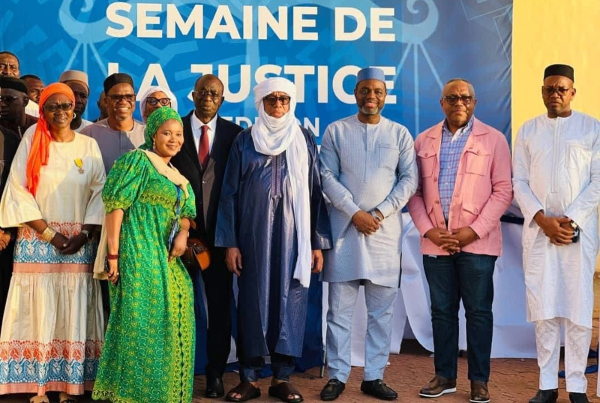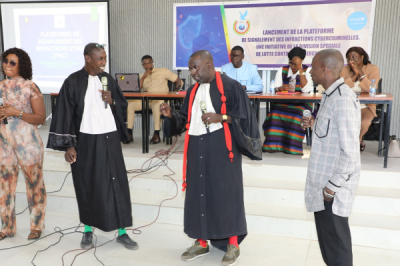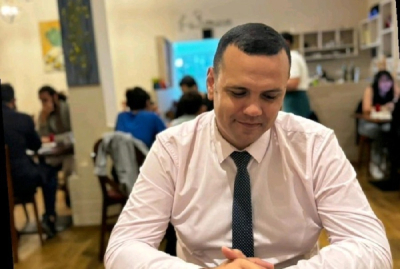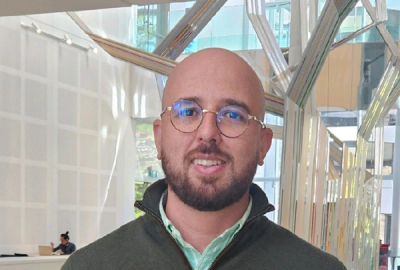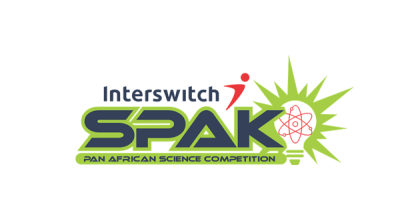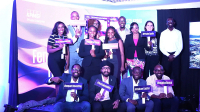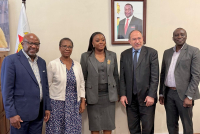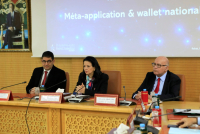Launched in 2024 by Nigerian startup New Generation Tech Ventures, 9jawap is positioning itself as a homegrown alternative to global social networks.
9jawap is a digital platform developed by Nigerian startup New Generation Tech Ventures to offer a locally-tailored alternative to mainstream social networks. Founded in 2024 by Ezekiel Adewunmi, the platform gives users a space to post content, engage with others, sell products, and monetize their presence, all from their mobile devices.
Available on iOS and Android, 9jawap takes a mobile-first approach with tools for creating diverse content types including posts, photos, videos, and blogs. Users can also create groups and events, while earning through tipping and subscription systems that let them monetize their publications directly.
The platform differentiates itself from global competitors by removing what it sees as opaque algorithms and monetization barriers that often restrict creators. It includes an integrated marketplace where users can sell goods or services directly to their community without leaving the platform.
"We identified a gap in locally relevant social platforms that reflect African user behaviour and incentives. Global social networks prioritise ads and subscriptions, while many African users value practical, immediate utility. Competitors include mainstream social platforms and local community apps, but most do not directly incentivise participation in a way that fits local realities," Ezekiel Adewunmi told Disrupt Africa.
To support creators, 9jawap offers "Leader" membership plans with progressive benefits, from increased visibility to expanded sales and branding tools. These features help users build a professional presence while remaining optimized for low-data networks, addressing a critical need in African markets where connectivity can be limited.
Adoni Conrad Quenum
-
Mali now allows citizens to request criminal records and nationality certificates online.
-
The government launched two dedicated portals developed by AGETIC and the Ministry of Justice.
-
Mali ranks 173rd out of 193 countries in the UN’s 2024 e-Government Development Index.
Alhamdou Ag Ilyène, Minister of Communication, Digital Economy and Administrative Modernization, and Mamoudou Kassogué, Minister of Justice and Human Rights, officially launched the online issuance system on February 10. The reform allows citizens to submit applications and receive both documents through digital platforms without physical travel.
Authorities made the services available via two separate government portals: casiercasier.gouv.ml for criminal records and nationalitenationalite.gouv.ml for nationality certificates. Users can file requests and track application progress online.
The government developed the platform through collaboration between the Ministry in charge of Digital Affairs and Agence des technologies de l’information et de la communication (AGETIC), in partnership with the Ministry of Justice.
The initiative forms part of a broader digital rollout across government services. Authorities recently introduced additional digital solutions at the Prime Minister’s Office in the transport, health and territorial administration sectors. These measures complement existing systems, including online services for Malians in the diaspora seeking administrative documents, computerized judicial case management tools and ongoing consular service digitization projects.
However, Mali continues to face structural challenges in digital governance. According to the United Nations 2024 e-Government Development Index, the country scored 0.3005 out of 1, ranking 173rd among 193 states. The score remains below the African average of 0.4247, reflecting progress in online service delivery but persistent gaps in infrastructure and digital skills.
The dematerialization of criminal record and nationality certificate services expands Mali’s online public service portfolio. Yet authorities must address cybersecurity risks, personal data protection concerns and limited digital adoption, particularly in rural areas where connectivity and access remain uneven.
This article was initially published in French by Samira Njoya
Adapted in English by Ange J.A de Berry Quenum
-
Senegal’s National Police launched an online cybercrime reporting platform on February 12.
-
The platform enables secure pre-reporting of a wide range of digital offenses, with a focus on child protection.
-
Interpol estimates cybercrime losses in Africa exceeded $3 billion between 2019 and 2025.
Senegal’s General Directorate of the National Police (DGPN) officially launched a cybercrime reporting platform on Thursday, February 12, as authorities seek to respond to rising digital offenses.
Authorities made the platform accessible via signalementcyber.dgpn.sn. The initiative aims to facilitate the reporting and monitoring of cybercrime cases, which continue to increase alongside the rapid adoption of mobile telephony, internet services and mobile money across Africa. Authorities placed particular emphasis on protecting children online.
The platform allows users to securely and confidentially report a broad range of digital offenses. Users can report fraud, unauthorized content distribution, dissemination of obscene material, online harassment, defamation, digital extortion, child sexual abuse material, hate content, unlawful system intrusion, account hacking, identity theft, SIM swap fraud, romance scams, fake investment schemes, mobile money scams, fraudulent access to mobile money accounts, fake online recruitment, fraudulent payments and fake online sales.
“The system offers victims the possibility of making an online pre-report before formally filing a complaint with the competent services, thereby facilitating access to justice and the rapid handling of cases. Developed internally by engineers of the national police, the online cybercrime reporting platform constitutes a major lever for public sector reform and the strengthening of community policing,” Deputy Director of the Judicial Police Moustapha Diouf said, as quoted by local media outlet SocialNetLink.
Authorities launched the platform amid accelerated digital transformation across Africa, where telecom, internet and social media adoption continue to expand. However, this expansion has coincided with a rise in online offenses, particularly financial scams and personal data breaches. Interpol estimated that cybersecurity incidents across the continent caused financial losses exceeding $3 billion between 2019 and 2025.
In Senegal, authorities framed the initiative as part of a broader cybersecurity strengthening strategy, which policymakers consider essential to fully leverage digital transformation, according to the International Telecommunication Union (ITU). In its 2024 Global Cybersecurity Index, the ITU ranked Senegal in Tier 3 and assessed its regulatory framework, technical measures and cooperation mechanisms as satisfactory. However, the organization identified remaining gaps in capacity development and organizational measures.
This article was initially published in French by Isaac K. Kassouwi
Adapted in English by Ange J.A de Berry Quenum
-
Mehdi L. Sariak founded Docteur 360 in 2022 to streamline access to medical appointments in Algeria.
-
The platform connects patients with doctors nationwide and automates appointment management.
-
Sariak previously held senior roles at Société Générale Algérie before launching his healthtech venture.
Algerian entrepreneur Mehdi L. Sariak is leveraging technology to improve access to healthcare in Algeria by simplifying how patients book medical appointments.
Mehdi L. Sariak founded Docteur 360 in 2022 as an online platform that allows patients to quickly find a doctor and book appointments directly. He positioned the platform as a health service with a strong human dimension that combines medical culture with personalized support. The company aims to modernize the patient journey and make access to care more fluid, faster and more equitable by removing common booking obstacles.
The platform allows each patient to search for a doctor, compare available profiles and select the specialist who best fits their needs. Direct access to practitioners’ profiles strengthens transparency and builds trust at the time of booking. Docteur 360 focuses on simplifying the patient pathway and reducing waiting times for appointments.
The company offers a broad range of services designed for both patients and healthcare professionals. The platform provides a nationwide directory of practitioners across Algeria, automates recurring tasks such as appointment management, reminders and notifications, and simplifies follow-up from booking to consultation. These features reduce delays and limit missed appointments.
Sariak holds a bachelor’s degree in business administration and management obtained in 2006 from Collège de Sherbrooke. He also earned a master’s degree in banking, financial, corporate and securities law in 2009 from IAE Paris.
He began his professional career in 2006 at Société Générale Algérie, where he successively served as credit analyst, senior banker, branch manager in Algiers and deputy director in charge of large corporates. Between 2016 and 2020, he chaired Oxonto, a French company, now closed, that specialized in wholesale trade of computers, IT equipment and software.
Sariak is positioning Docteur 360 as part of Algeria’s broader digital transformation in healthcare, where entrepreneurs are using technology to address structural inefficiencies in patient access and care coordination.
This article was initially published in French by Melchior Koba
Adapted in English by Ange J.A de Berry Quenum
- Ahmed Hormal founded Keema in 2020 to deliver custom AI applications and cloud infrastructure to organizations.
- Keema renewed its Qualiopi certification in 2025, underscoring the quality of its AI-focused training programs.
- Hormal concurrently serves as Head of Engineering at Yakeey while building a career across Capgemini, ING Direct France, Yomoni, SNCF Connect & Tech, Sonepar and BforBank.
Moroccan entrepreneur and computer scientist Ahmed Hormal is positioning his company Keema as a provider of practical and accessible artificial intelligence solutions for organizations seeking to accelerate their digital transformation.
Hormal founded Keema in 2020 to support organizations that want to fully leverage digital technologies and artificial intelligence. The company designs tailor-made applications and deploys stable cloud-based technical environments.
Keema builds infrastructure that supports business growth and ensures uninterrupted operations. The company provides performance-oriented tools that allow teams to rely on resilient systems in their day-to-day activities. Hormal’s strategy centers on creating solid digital foundations before layering advanced AI capabilities.
Keema integrates artificial intelligence directly into clients’ digital products and operational tools. The company also advises organizations that seek to understand how AI can transform their business models and internal processes.
Its training programs present a structured view of AI opportunities while highlighting the technology’s limitations and operational challenges in corporate environments. Keema provides specific training on intelligent assistants built on so-called “generative” AI systems.
The training targets software engineers, technical managers and professionals interested in emerging AI approaches. The programs teach participants how to design intelligent assistants that integrate into existing systems. Keema also offers a dedicated track focused on application quality.
In 2025, Keema renewed its Qualiopi certification for training activities, reinforcing the rigor and credibility of its educational processes.
Alongside his work at Keema, Hormal serves as Head of Engineering at Yakeey, a Moroccan digital real estate company. Previously, he co-founded Biilz in 2022, a digital receipt aggregation platform, and served as Chief Technology Officer until 2024.
Hormal holds a bachelor’s degree in mathematics and computer science from Hassan II University Mohammedia, obtained in 2011. He earned a master’s degree in computer engineering in 2013 from Blaise Pascal University (Clermont-II).
He began his professional career in France in 2013 as a software developer. He worked at Capgemini, at financial firms ING Direct France and Yomoni, and at technology company SNCF Connect & Tech. In 2019, he became Technical Manager at Muvraline. He then assumed a similar role in 2020 at Sonepar, a distributor of electrical equipment and solutions. Between 2023 and 2025, he served as Technical Manager at BforBank, a French online bank.
Melchior Koba
Interswitch has launched Season 8 of InterswitchSPAK, a national STEM competition in Nigeria. The scholarship prize pool exceeds 40 million Naira (approximately $30,000) and includes five-year academic grants, laptops for the nine finalists, and cash prizes for their teachers. Parents and guardians can register students by May 24, 2026.
KPMG has opened applications for the 2026 'Female Founders in Africa' competition, targeting women entrepreneurs leading high-potential startups across the continent. The program spans various sectors, including tech, healthcare, and agriculture. Participants can benefit from mentorship, increased visibility, and networking opportunities with investors. Applications are open through Saturday, February 28.
WhatsApp is rolling out voice and video calls directly to its web browser, eliminating the need for a desktop app. The feature launches with one-on-one calls, while group calls, call links, and scheduled calls are set to arrive soon. All conversations remain protected by end-to-end encryption, and screen sharing is also available, which will be particularly useful for Linux users.
- Zimbabwe, UNESCO discuss AI and digital governance cooperation
- Talks align with Smart Zimbabwe 2030 digital plan
- Zimbabwe ranks 149th in 2024 UN e-government index
Zimbabwe is exploring new areas of cooperation with UNESCO in artificial intelligence, digital transformation and digital governance following a meeting on Tuesday, Feb. 10, between ICT Minister Tatenda Mavetera (pictured, center) and Tawfik Jelassi, UNESCO's assistant director-general for communication and information.
"Our discussions covered artificial intelligence and national policy frameworks, digital transformation in the public sector, the regulation and governance of digital platforms, and the development of digital skills for both youth and adults," Jelassi said.
Mavetera highlighted the transformative role of AI and emerging technologies in government operations and national development, stressing the importance of research, innovation and collaboration with academic and technical institutions to foster sustainable technological solutions.
The engagement aligns with Zimbabwe's digital transformation ambitions. Through the "Smart Zimbabwe 2030 Master Plan," the government aims to fully integrate ICTs across society and all economic sectors to drive rapid and sustainable socio-economic development. The plan references an International Telecommunication Union study showing that a 10% increase in a country's digitalization score leads to a 0.75% rise in GDP per capita.
Artificial intelligence is positioned as a key catalyst in this strategy, with potential to boost efficiency, drive innovation and improve services across sectors from agriculture and health to education and public administration. The recent UNESCO collaboration has focused on AI, with the organization helping to develop Zimbabwe's national strategy and assess the country's readiness.
However, an assessment report published in July 2025 notes that to fully harness AI's potential, Zimbabwe must establish a comprehensive national strategy with a plan to address key challenges including foreign dominance and cultural imposition, loss of human autonomy, financing constraints, technical infrastructure limitations, and research capacity gaps exacerbated by brain drain.
Zimbabwe currently ranks 149th out of 193 countries in the United Nations' 2024 E-Government Development Index, with a score of 0.4481 out of 1, below the global average of 0.6382.
Isaac K. Kassouwi
-
Morocco signed eight memorandums of understanding to launch the operational phase of the Idarati X.0 unified digital services platform.
-
Authorities will build the system around a national digital wallet authenticated through the electronic national identity card (CNIE).
-
Morocco ranks 90th globally and 4th in Africa in the 2024 UN E-Government Development Index, with 600 public services already online.
Morocco is accelerating the structuring of its e-government ecosystem. Authorities signed eight memorandums of understanding in Rabat on Tuesday, February 10 to launch the operational phase of the “Idarati X.0” project, a meta-application designed to become the single entry point for digital public services.
The Ministry of Digital Transition and Administration Reform leads the project in coordination with the National Commission for the Control of Personal Data Protection (CNDP). The initiative aims to structure a comprehensive ecosystem around a national digital wallet. Authorities will use this core infrastructure to allow citizens to access multiple administrative services through a single interface, relying on the electronic national identity card (CNIE) as the authentication foundation.
The agreements commit several key institutions, including the Ministry of Youth, Culture and Communication, the Ministry of Transport and Logistics, the National Social Security Fund (CNSS), the National Road Safety Agency (NARSA), and the National Agency for Land Conservation, Cadastre and Cartography (ANCFCC). Other public administrations also joined the framework, underscoring a cross-sector approach based on system interoperability.
Authorities designed Idarati X.0 as more than an aggregator of existing services. The project seeks to redesign user pathways, reduce fragmentation across public platforms and centralize interactions between citizens and the administration. Project leaders structured the rollout into four phases, ranging from an initial benchmark to the assessment of capital expenditures (Capex) and operating costs (Opex), over an estimated six-month period.
Authorities placed data protection at the center of the framework. Project leaders adopted “privacy by design” and “security by design” principles and integrated regulatory compliance and cybersecurity requirements at the technical design stage. The CNDP participates in the process to ensure alignment with national standards on data confidentiality and governance.
The initiative forms part of the broader “Maroc Digital 2030” strategy, which seeks to accelerate the dematerialization of procedures, strengthen digital inclusion and improve public service quality. In 2024, authorities had already placed 600 public services online, including 300 for citizens, 200 for businesses and 100 for public administrations. This performance positions Morocco among Africa’s leaders in digital transformation.
Morocco ranks 90th globally and 4th in Africa in the United Nations 2024 E-Government Development Index (EGDI), with a score of 0.6841 out of 1, exceeding both African and global averages.
Morocco’s digital environment supports such initiatives. DataReportal reports that the country counted more than 35.3 million internet users at the end of 2025, representing a penetration rate of around 92% of the population. Mobile connections exceeded 54.9 million, reflecting widespread mobile adoption and large-scale internet access.
Samira Njoya
More...
-
Douglas Hoernle founded Karri in 2016 to digitize and secure school payments without cash handling.
-
The platform enables schools to issue payment requests and allows parents to pay instantly via mobile, reducing delays and manual processing.
-
Hoernle also co-founded The Student Funding Company in 2023 to expand access to higher education financing in the UK.
Douglas Hoernle is a South African entrepreneur. He founded and leads Karri, a start-up that seeks to simplify, accelerate and secure school payments without requiring cash handling.
Founded in 2016, Karri enables schools to create payment requests in a few steps for activities, field trips, ad hoc fees or fundraising initiatives. The application automatically sends notifications and reminders once schools issue a request, and it guides parents to complete payments within seconds. Schools benefit from a reliable and recurring system that reduces delays, missed payments and manual cash handling.
For parents, Karri provides a simple and secure way to pay schools directly from a mobile phone. The application eliminates the need to send cash in envelopes through children or to search for change. The platform centralizes payment requests, displays amounts and deadlines, and allows instant settlement.
The platform also offers a payment card for students that links to the parental application. The solution helps children learn how to manage spending within a secure framework under adult supervision. Parents can set daily spending limits and share account control with multiple guardians when necessary.
In parallel, Douglas Hoernle co-founded and directs The Student Funding Company, a start-up launched in 2023 that aims to remove financial barriers and enable students to pursue higher education in the United Kingdom. He also serves on the board of Manati Alternate Student Funding, a student finance provider, and he belongs to the London chapter of the Entrepreneurs’ Organization, an international network of entrepreneurs.
Douglas Hoernle holds a finance degree from the University of Cape Town. He began his entrepreneurial career in 2010 when he founded The Wine Society, a company that supplied Cape Town’s student market with customized, quality and affordable wines and promotional products. He launched Rethink Education in 2012 as an online learning solutions provider.
Two years later, he co-founded Juggl, a cross-platform mobile application that offers communication services, real-time calendar management, content distribution and payment functions between schools, teachers and parents across sectors. In 2016, he founded Rippl Communicator, an internal corporate communication application, and he co-founded Merriment and Co., a beverage supplier that he led until its sale in 2018.
This article was initially published in French by Melchior Koba
Adapted in English by Ange J.A de Berry Quenum
-
Tim Treagus founded Yazi in 2023 to conduct surveys and market research directly through WhatsApp.
-
The platform allows organizations to design questionnaires online and collect responses within WhatsApp conversations, then analyze data via a web dashboard.
-
Treagus also co-founded beach pillow brand Billo and previously worked in consulting and product management in South Africa’s innovation ecosystem.
Tim Treagus is a South African entrepreneur and finance graduate. He founded Yazi, a survey and market research platform that enables users to ask questions directly on WhatsApp and analyze responses through a clear and user-friendly web interface.
Founded in 2023, Yazi helps companies, agencies and researchers better understand their customers, markets and beneficiaries by using WhatsApp as the main data collection channel. Instead of sending questionnaires by email or through online forms, organizations deliver questions within a WhatsApp conversation that resembles an ordinary chat. Participants therefore respond within an application they already use daily.
The platform supports multiple research formats. Organizations can deploy quantitative questions, collect in-depth qualitative feedback, run longitudinal diary studies, and test ideas or concepts. Yazi aims to accelerate data collection, increase proximity to respondents and improve the reliability of insights gathered from real-world contexts.
Research teams first design their questionnaires in Yazi’s online interface, using a process similar to traditional form-building tools. Once teams finalize the survey, they distribute it via WhatsApp. Targeted participants receive an invitation, navigate through the questions, enter or select their responses directly in the chat, and pause or resume the survey when needed.
On the analytics side, teams access results through an interactive dashboard that displays charts, statistics and raw data exports alongside respondent profiles. Yazi also provides a tracking view that shows who completed the survey, who remains in progress and who has not started, enabling real-time monitoring and structured follow-ups.
In parallel, Tim Treagus co-founded Billo, a beach pillow brand launched in 2018. He graduated from the University of Cape Town in 2019 with a bachelor’s degree in finance, and he completed a Udacity program in artificial intelligence product management in 2020.
He began his professional career in 2018 as a consultant at Phaphama SEDI, a South African organization that supports leadership, entrepreneurship and small business development. He then served as product manager at The Delta from 2020 to 2022, where he contributed to an ecosystem focused on innovation and venture creation.
Melchior Koba
Cameroon will host e-Gov’A, the African e-Governance Summit, in Yaoundé from May 14-16, 2026. Held under the theme “Artificial Intelligence and e-Governance,” the event aims to accelerate the transition to more efficient digital public services across Africa. The summit will bring together policymakers, experts and technology leaders to develop practical digital solutions.
Agritech startups in Kenya and Uganda are invited to apply for the O-Farms accelerator, a program focused on circular agriculture models that reduce waste and generate new revenue streams for rural communities. Selected participants will receive specialized training, mentorship, technical support and networking opportunities. Upon completion of the program, two standout startups will each receive a grant of up to €50,000. Applications close on Sunday, February 15.



